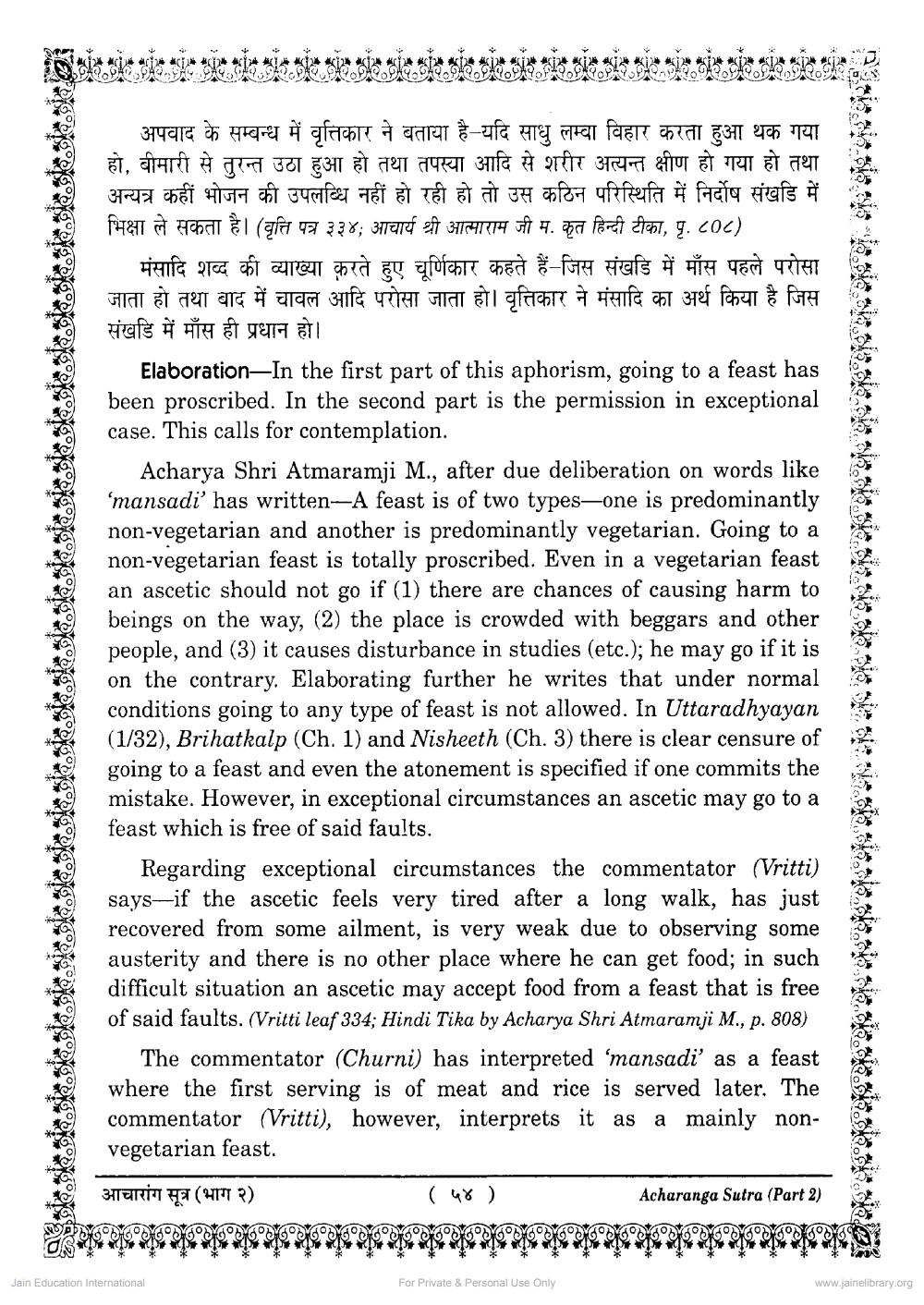________________
Ka
अपवाद के सम्बन्ध में वृत्तिकार ने बताया है-यदि साधु लम्वा विहार करता हुआ थक गया हो, बीमारी से तुरन्त उठा हुआ हो तथा तपस्या आदि से शरीर अत्यन्त क्षीण हो गया हो तथा अन्यत्र कहीं भोजन की उपलब्धि नहीं हो रही हो तो उस कठिन परिस्थिति में निर्दोष संखडि में भिक्षा ले सकता है। (वृत्ति पत्र ३३४; आचार्य श्री आत्माराम जी म. कृत हिन्दी टीका, पृ. ८०८) ___ मंसादि शब्द की व्याख्या करते हुए चूर्णिकार कहते हैं-जिस संखडि में माँस पहले परोसा जाता हो तथा बाद में चावल आदि परोसा जाता हो। वृत्तिकार ने मंसादि का अर्थ किया है जिस संखडि में माँस ही प्रधान हो।
Elaboration—In the first part of this aphorism, going to a feast has been proscribed. In the second part is the permission in exceptional case. This calls for contemplation.
Acharya Shri Atmaramji M., after due deliberation on words like 'mansadi' has written-A feast is of two types-one is predominantly n on-vegetarian and another is predominantly vegetarian. Going to a non-vegetarian feast is totally proscribed. Even in a vegetarian feast an ascetic should not go if (1) there are chances of causing harm to beings on the way, (2) the place is crowded with beggars and other people, and (3) it causes disturbance in studies (etc.); he may go if it is on the contrary. Elaborating further he writes that under normal conditions going to any type of feast is not allowed. In Uttaradhyayan (1/32), Brihatkalp (Ch. 1) and Nisheeth (Ch. 3) there is clear censure of going to a feast and even the atonement is specified if one commits the mistake. However, in exceptional circumstances an ascetic may go to a feast which is free of said faults.
Regarding exceptional circumstances the commentator (Vritti) says-if the ascetic feels very tired after a long walk, has just recovered from some ailment, is very weak due to observing some austerity and there is no other place where he can get food; in such difficult situation an ascetic may accept food from a feast that is free of said faults. (Vritti leaf 334; Hindi Tika by Acharya Shri Atmaramji M., p. 808) ___The commentator (Churni) has interpreted 'mansadi' as a feast where the first serving is of meat and rice is served later. The commentator (Vritti), however, interprets it as a mainly nonvegetarian feast.
आचारांग सूत्र (भाग २)
( ५४ )
Acharanga Sutra (Part 2)
Jain Education International
For Private & Personal Use Only
www.jainelibrary.org




